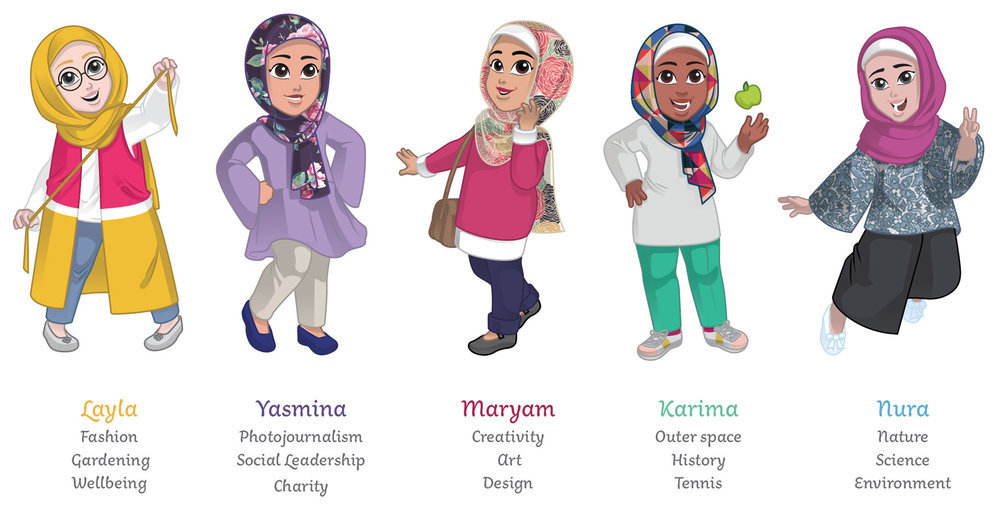DUBAI – Hoping to inspire young Muslim girls to take pride in their faith, a Dubai-based company has created a set of hijabi dolls that represent a wide range of interests and aspirations.
“We want young girls who don’t often see their cultural identities and faith represented in a relatable way to know that they can be proud of their backgrounds,” Ansarullah Ridwan Muhammad, co-founder of Zileej, told Huffington Post.
“We want them to see that all of who they are is uniquely beautiful — even when it sounds like the world is telling them that they don’t have the perfect hair, or skin color, or size, or religion.”
The five Salam Sisters dolls were designed by Zileej, a faith-based creative company, to help Muslim girls feel connected with their roots and comfortable in their identities
Showcasing the diversity of the world’s 1.8 billion Muslims, the dolls were given a wide range of interests and aspirations, including journalism, astronomy, art, history, sports, and social leadership
Karima, one of the dolls, represents a Muslim who loves playing tennis and learning about outer space. Nura is described as an aspiring scientist who is also working hard to memorize the whole Quran. Layla is a budding fashion designer and gardener.
Like other dolls, inspired by real-life Muslim women, Yasmina was inspired by Yassmin Abdel-Magied, an outspoken Australian Muslim activist. The character is described as a photojournalist and leader who likes to fundraise for charities.
The idea for Salam Sisters started when Zileej’s co-founder Peter Gould was looking for dolls for his two young daughters that would help them feel empowered and connected to their family’s Muslim identity.
“He wanted to create representative toys that they would love,” Muhammad recalled.
“With messages and stories that would inspire them to become leaders, and encourage them to boldly make positive contributions to the world.”

Hijab
The five Salam Sisters dolls have hijabs that are removable and rearrangeable to encourage girls to experiment with different styles.
“This flexibility reflects the lived experience of Muslims across the world, who have been choosing to style their headscarves — and their hair — in ways that are inspired by a kaleidoscope of different cultural influences,” Subhi Bora, Zileej’s creative team director, told HuffPost.
He added that it was important to the team to show young girls that wearing the Islamic hijab can be a beautiful and deeply personal choice.
Muhammad said that one of Zileej’s main goals for Salam Sisters is to help young Muslim girls realize that “the world is equally theirs to experience as completely as possible and that their voices not only matter but must be heard.”
“We would love for all people who see the Salam Sisters to take home the message that having a welcoming mindset to diversity is a beautiful thing,” Muhammad said.
The dolls have come out on the market during a time when Muslims in Western countries are reporting high levels of Islamophobia.
Nearly two-thirds (64 percent) of visibly Muslim respondents told the Pew Research Center in 2017 that they’ve experienced at least one instance of religious discrimination in the past year.
The Institute for Social Policy and Understanding, a research firm that focuses on Muslim American issues, found in 2017 that Muslims were about four times as likely as the general public to report that their school-aged children were being bullied.
A 2016 survey of 1,041 Muslim students in California also revealed evidence of bullying.